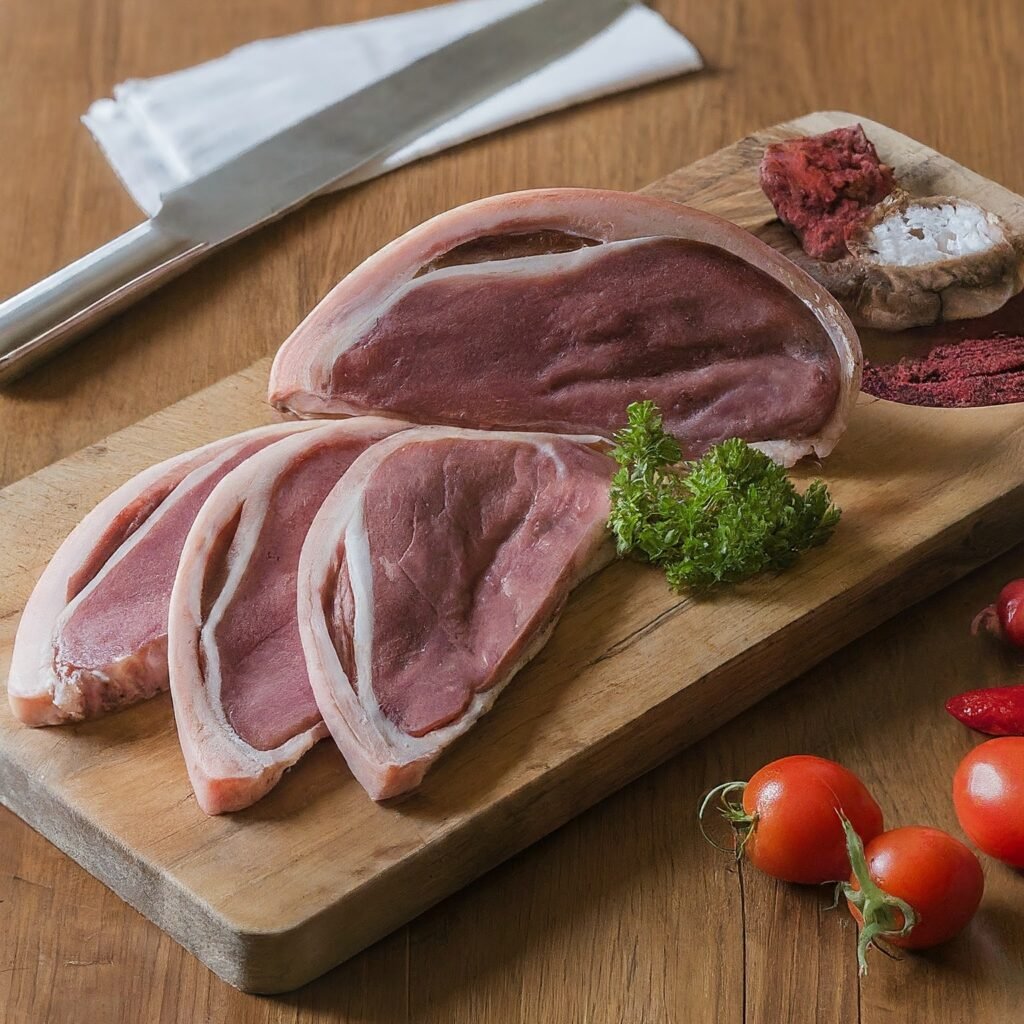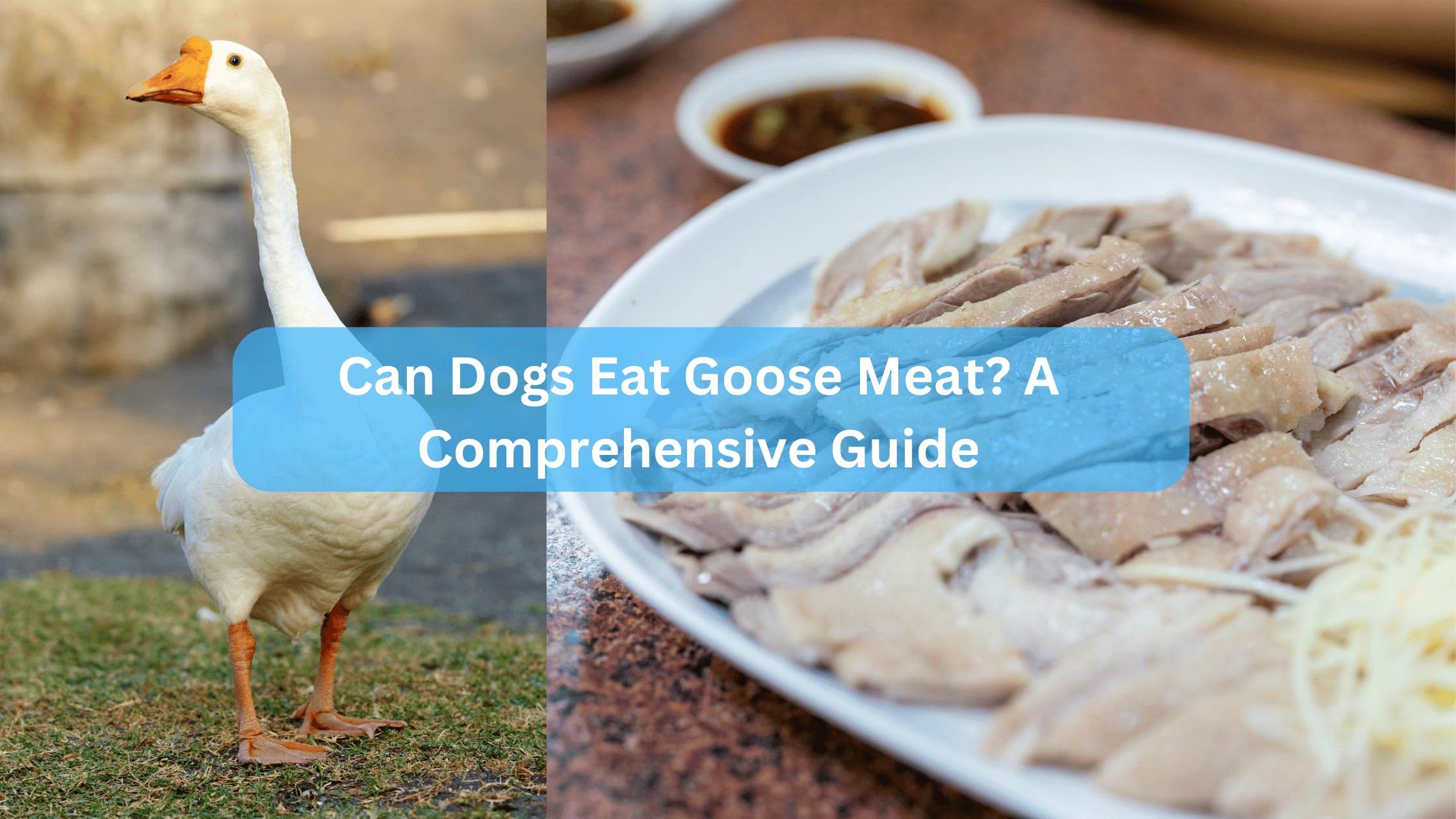When it comes to feeding our furry friends, pet owners often wonder about the safety and nutritional value of various meats. One question that frequently arises is: Can dogs eat goose meat?
This article will explore the benefits and potential risks of including goose meat in your dog’s diet, as well as how to prepare it safely.
Can Dogs Eat Goose Meat?

Yes, dogs can eat goose meat! It is safe for them when properly prepared and cooked. Goose meat is rich in protein and healthy fats, making it a nutritious option for dogs.
However, moderation is key, as it is higher in fat compared to other meats. Always ensure that the meat is cooked thoroughly and free of bones before serving it to your furry friend.
Nutritional Benefits of Goose Meat for Dogs
Goose meat can be a nutritious addition to your dog’s diet. Here are some of its key benefits:
- High Protein Content: Goose meat is rich in protein, which is essential for muscle development and overall health in dogs. Protein helps in repairing tissues and supporting a healthy immune system.
- Healthy Fats: Goose contains a good amount of fat, particularly unsaturated fats, which can be beneficial for your dog’s skin and coat health. These fats also provide a concentrated source of energy.
- Vitamins and Minerals: Goose meat is a source of essential vitamins and minerals, including B vitamins (like B12 and niacin), zinc, and iron, which are important for energy metabolism and immune function.
Is Goose Meat Safe for Dogs?
While goose meat can be nutritious, there are some considerations to keep in mind:
- Cooked vs. Raw: It is generally safer to feed your dog cooked goose meat. Raw meat can carry bacteria like Salmonella or E. coli, which can cause gastrointestinal issues in dogs. Cooking the meat thoroughly eliminates these risks.
- Fat Content: Goose is fattier than other meats like chicken or turkey. While healthy fats are beneficial, too much fat can lead to obesity and pancreatitis in dogs. It’s important to moderate the amount of goose meat you feed your dog.
- Allergies and Sensitivities: Some dogs may have allergies or sensitivities to certain meats. If you are introducing goose meat for the first time, start with a small portion and monitor your dog for any adverse reactions.
How to Prepare Goose Meat for Dogs
If you decide to include goose meat in your dog’s diet, here are some safe preparation tips:
- Choose Fresh, High-Quality Meat: Always select fresh goose meat from a reputable source. Avoid processed or seasoned meats, as they may contain harmful additives.
- Cook Thoroughly: Cook the goose meat until it reaches an internal temperature of at least 165°F (74°C). This ensures that any harmful bacteria are killed.
- Remove Bones: Goose bones can splinter and pose a choking hazard or cause internal injuries. Always remove bones before serving the meat to your dog.
- Serve in Moderation: Goose meat should be an occasional treat rather than a staple. Balance it with other protein sources and ensure your dog’s diet is varied and complete.
- Consult Your Veterinarian: Before making significant changes to your dog’s diet, it’s always a good idea to consult with your veterinarian. They can provide personalized advice based on your dog’s health and dietary needs.
Alternatives to Goose Meat for Dogs
If you find that goose meat is not suitable for your dog, there are plenty of other protein sources to consider:
- Chicken: A common and easily digestible option for dogs.
- Turkey: Another poultry option that is leaner than goose.
- Beef: Rich in protein and iron, beef can be a great alternative.
- Fish: Salmon and sardines are excellent sources of omega-3 fatty acids, which are beneficial for skin and coat health.
Also Read: My Dog Ate Aluminum Foil: A Comprehensive Guide
Also Read: Can Dogs Eat Ravioli? A Comprehensive Guide
Conclusion
In conclusion, dogs can eat goose meat, and it can be a nutritious addition to their diet when prepared properly.
Always prioritize safety by cooking the meat thoroughly and removing bones.
As with any dietary change, moderation is key, and consulting with a veterinarian can help ensure that your dog’s nutritional needs are met.
By providing a balanced diet that includes a variety of protein sources, you can help your dog maintain optimal health and well-being.
Sources:
- https://www.mdpi.com/2076-2615/13/5/840
- https://dogtime.com/dog-health/dog-food-dog-nutrition/89595-can-dogs-eat-goose-safe







